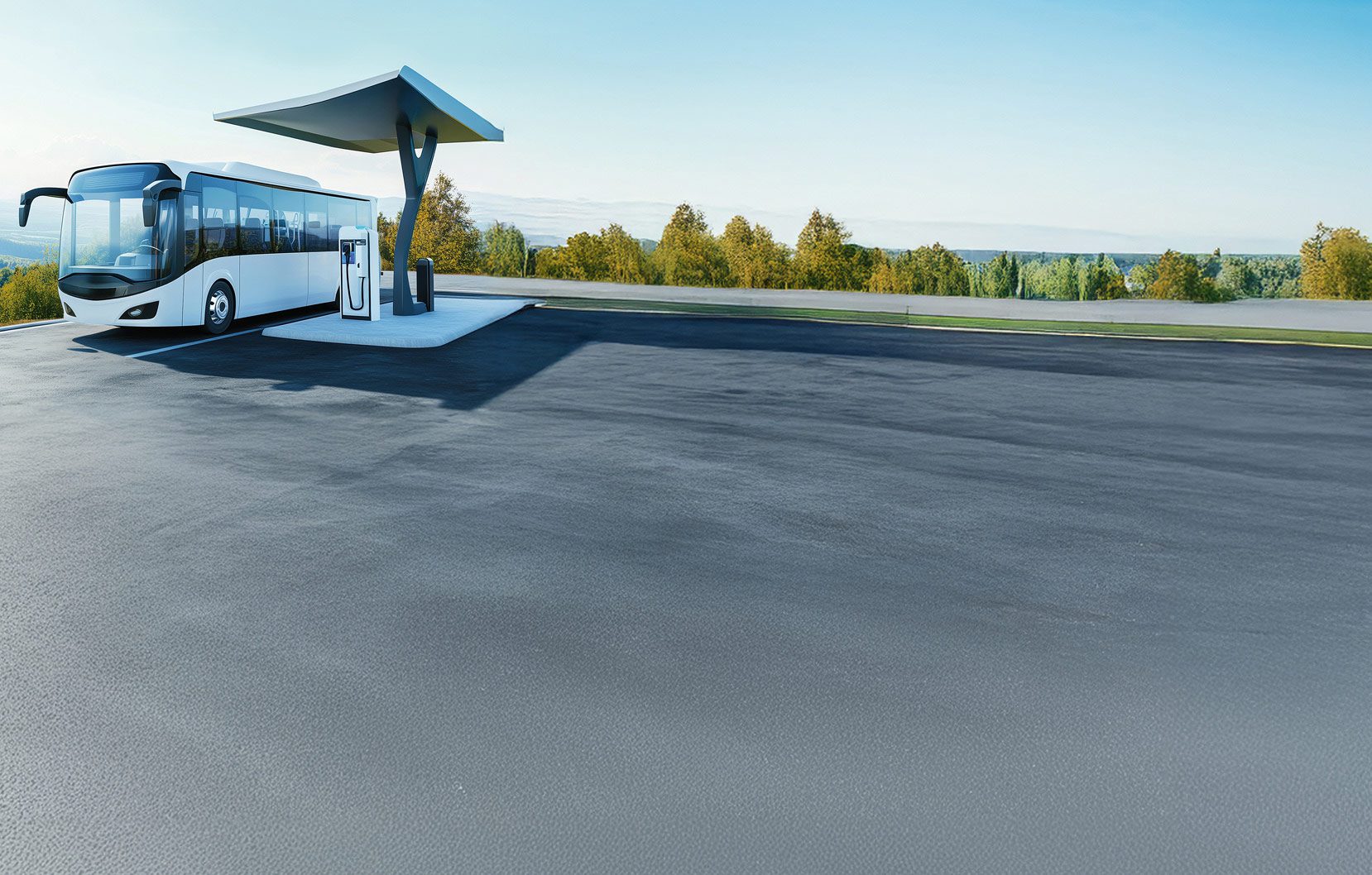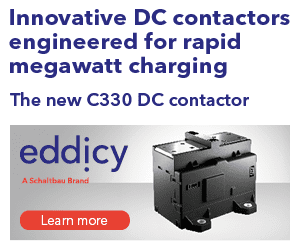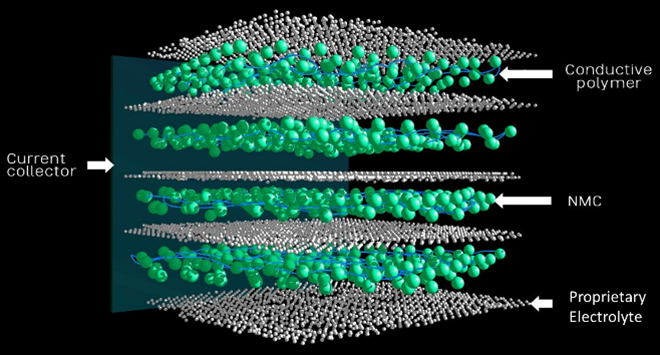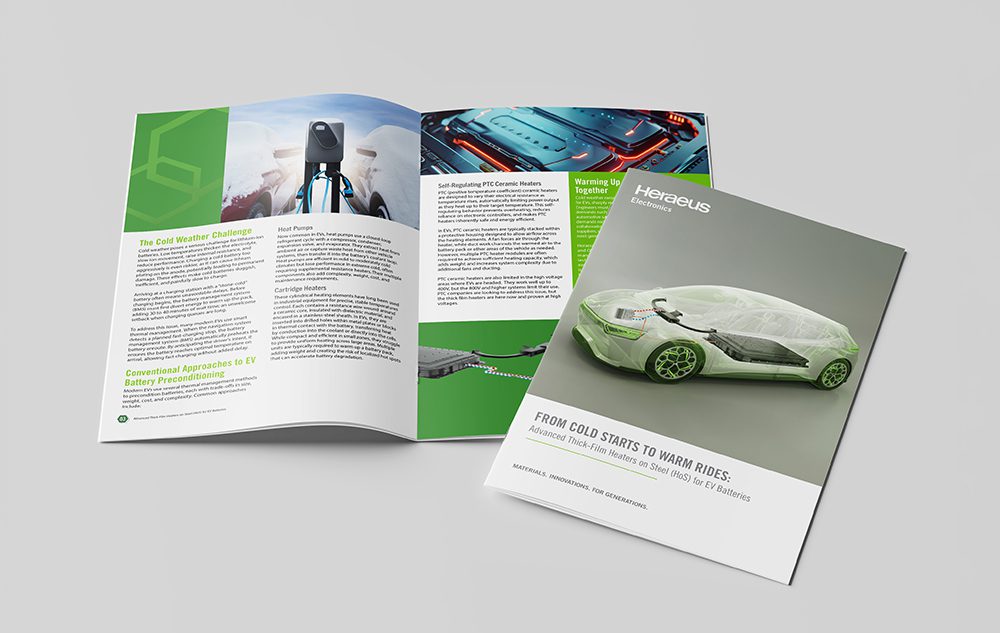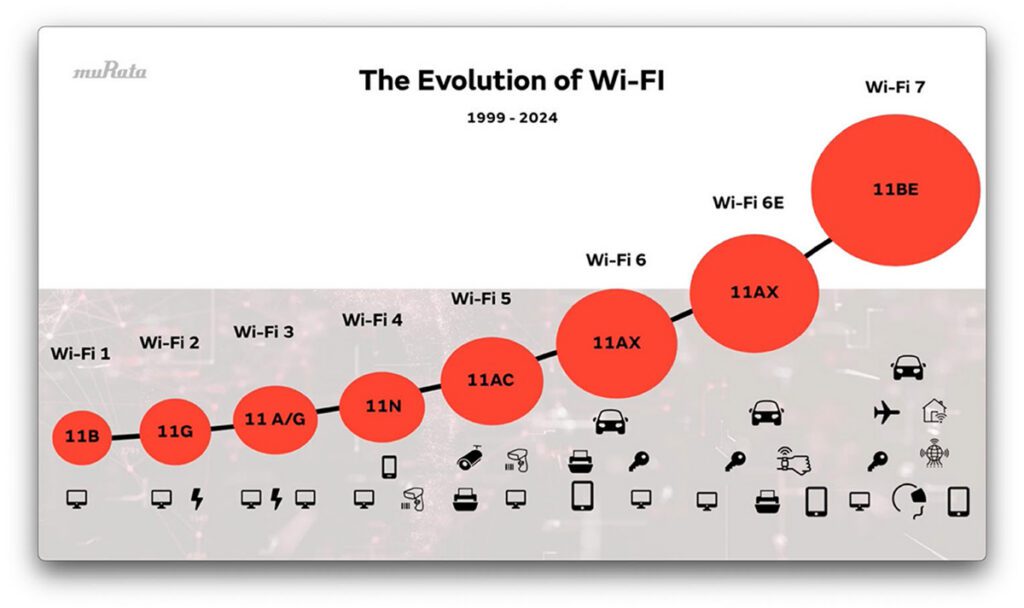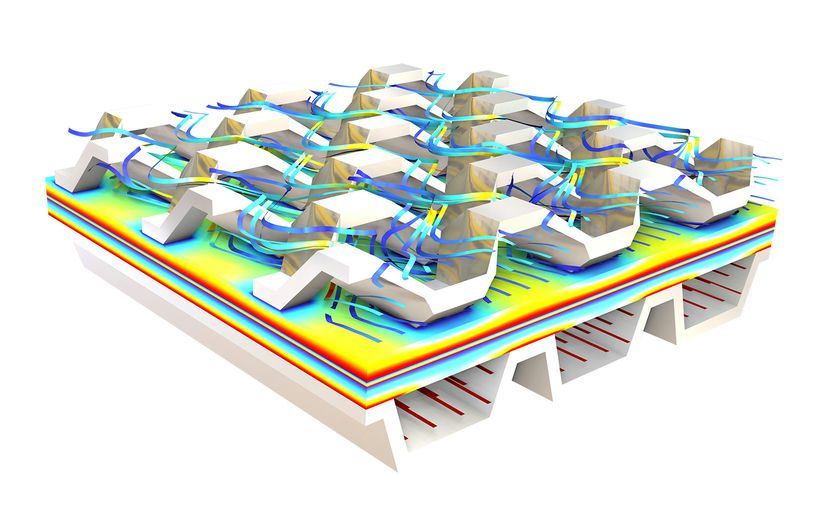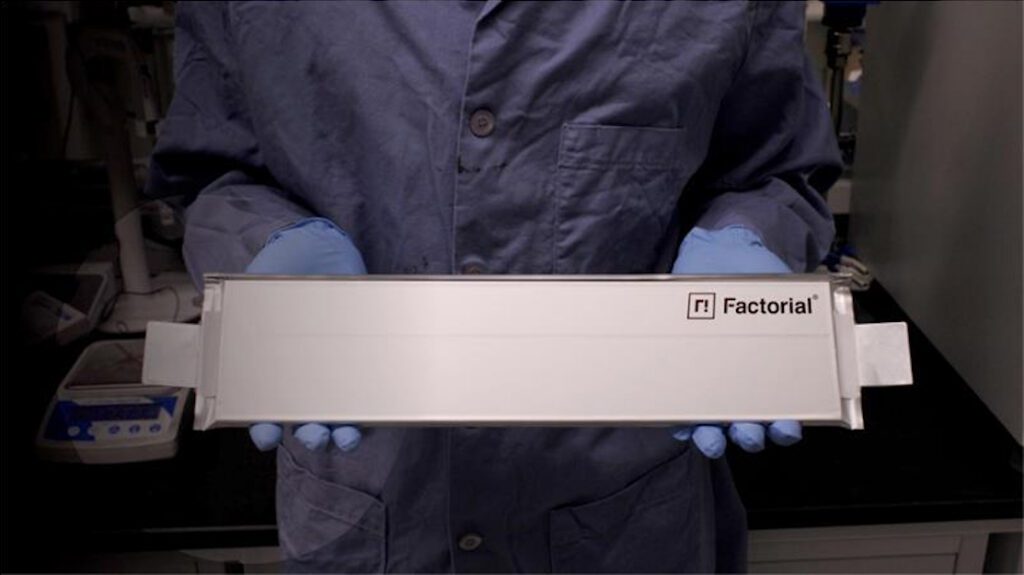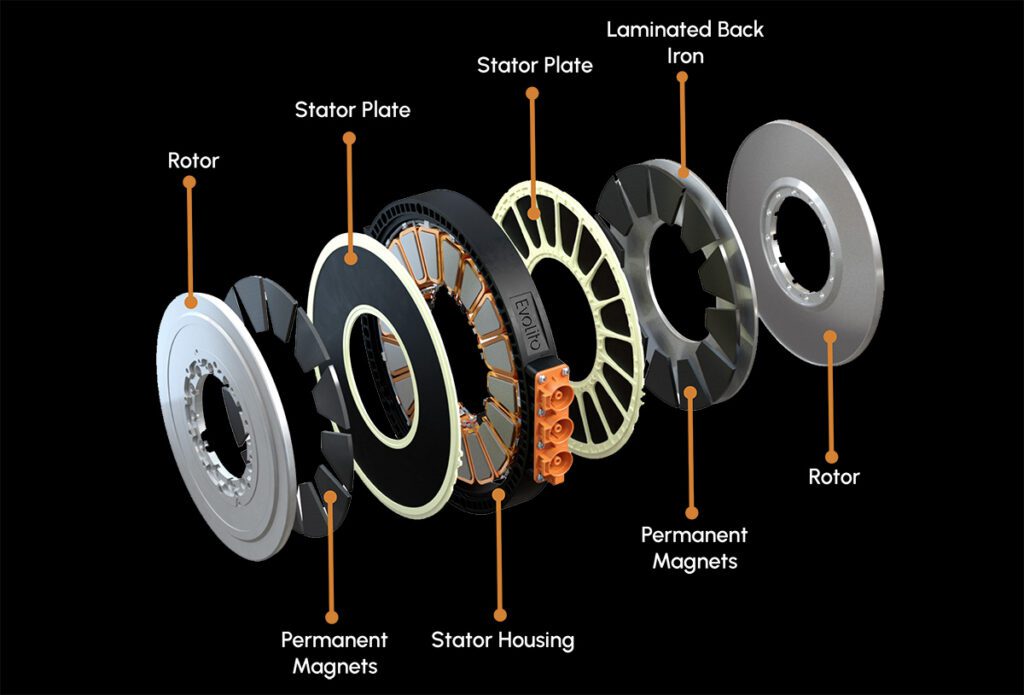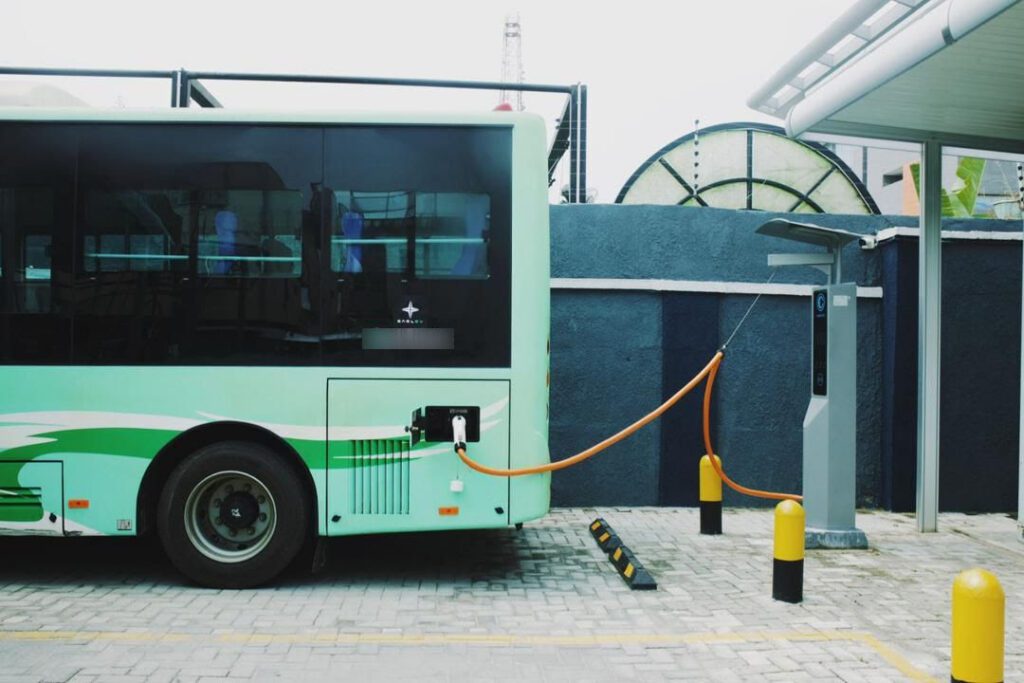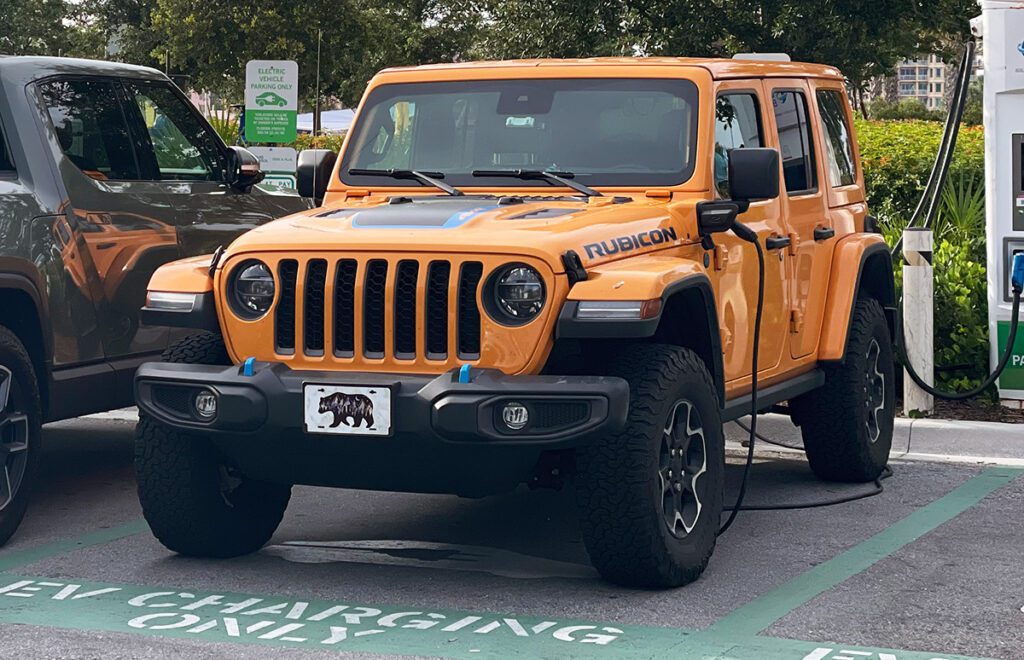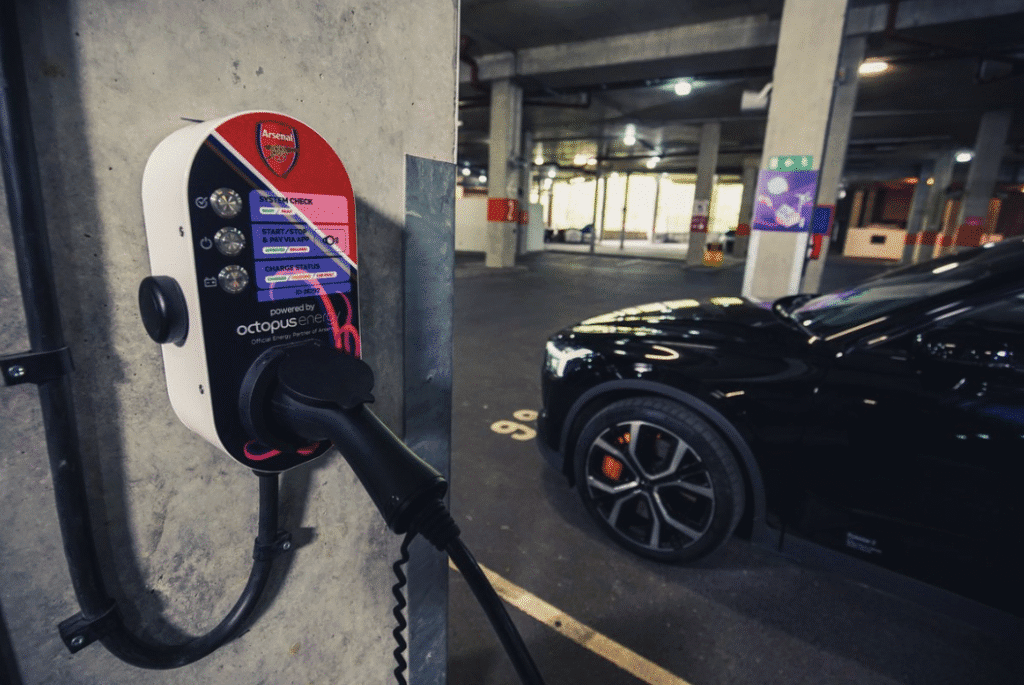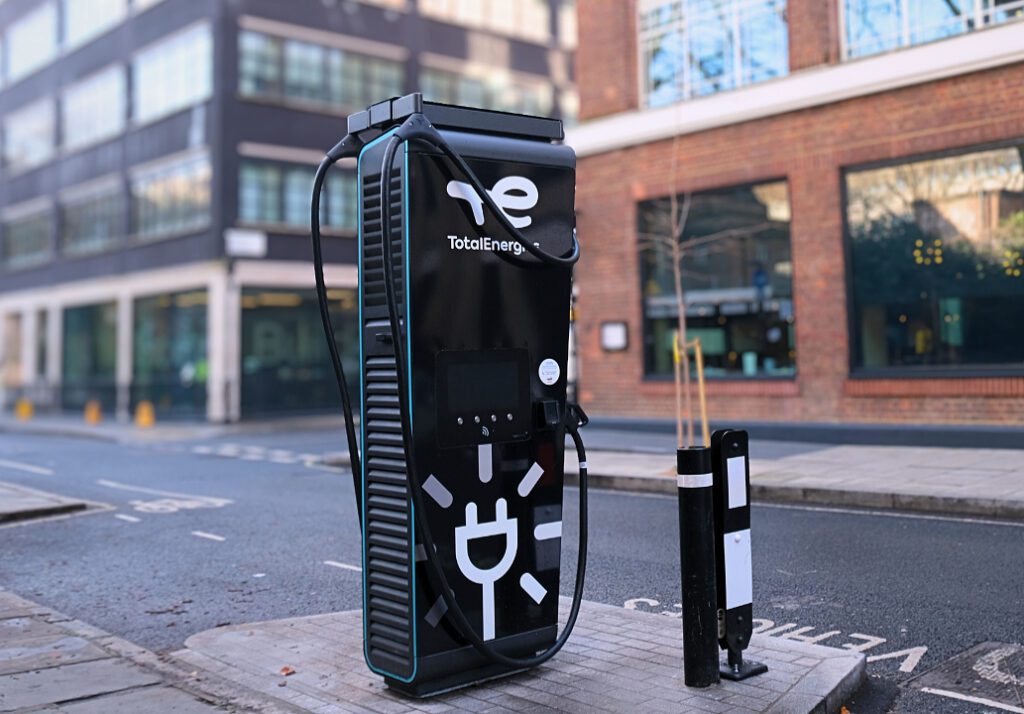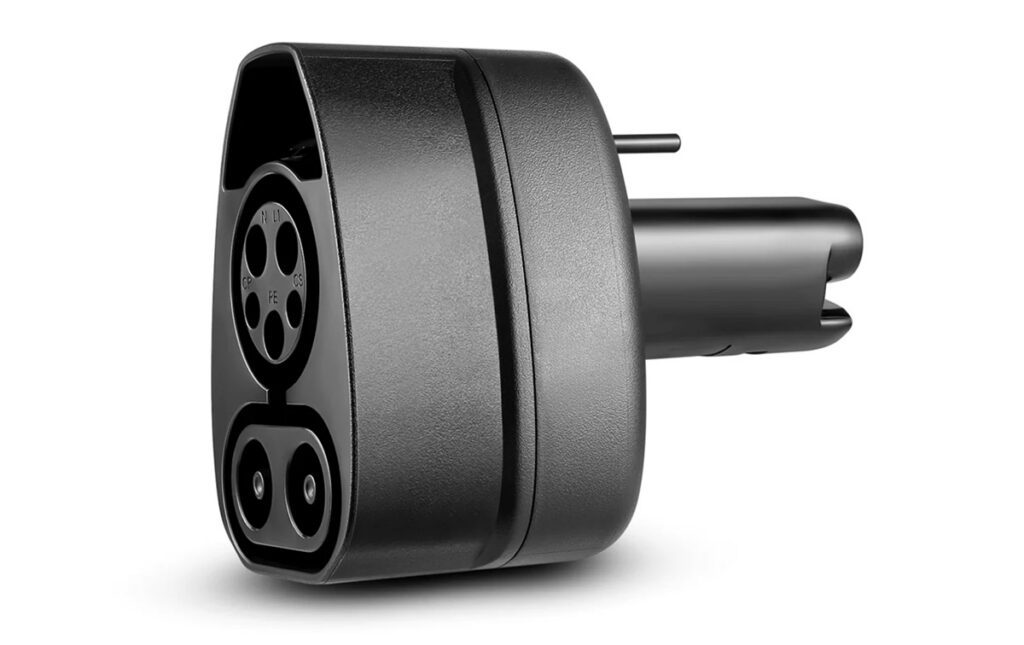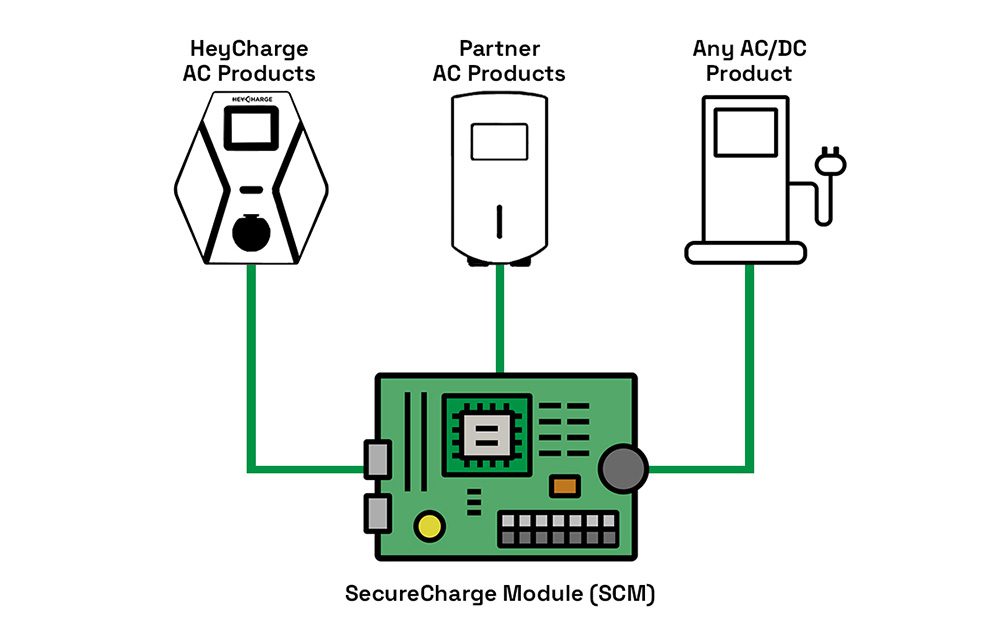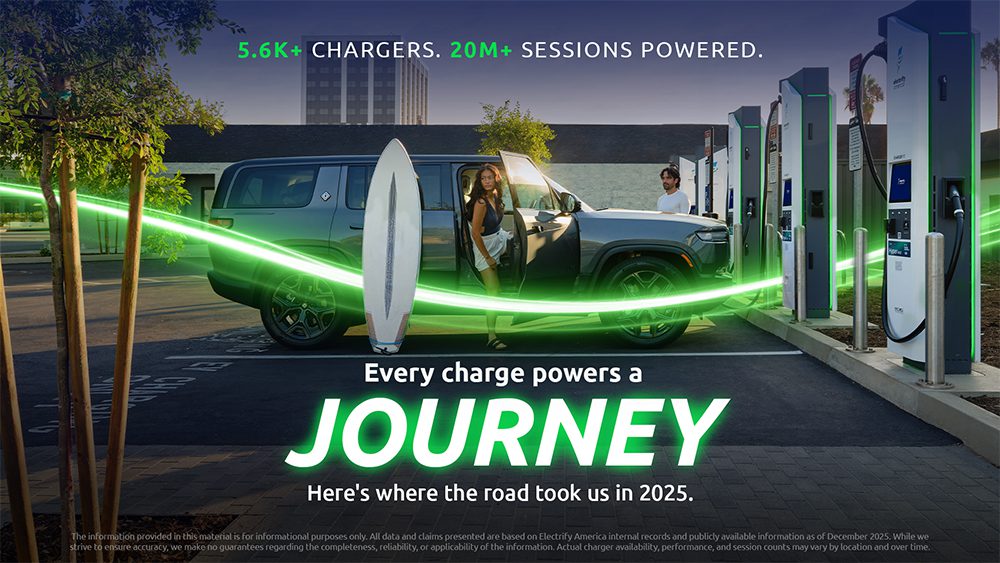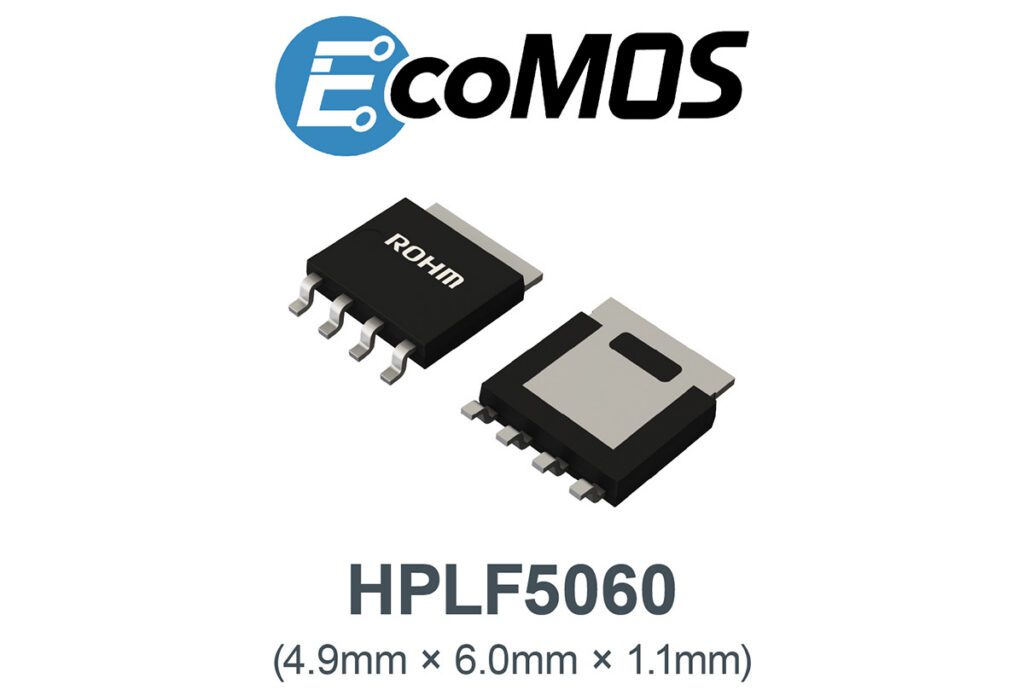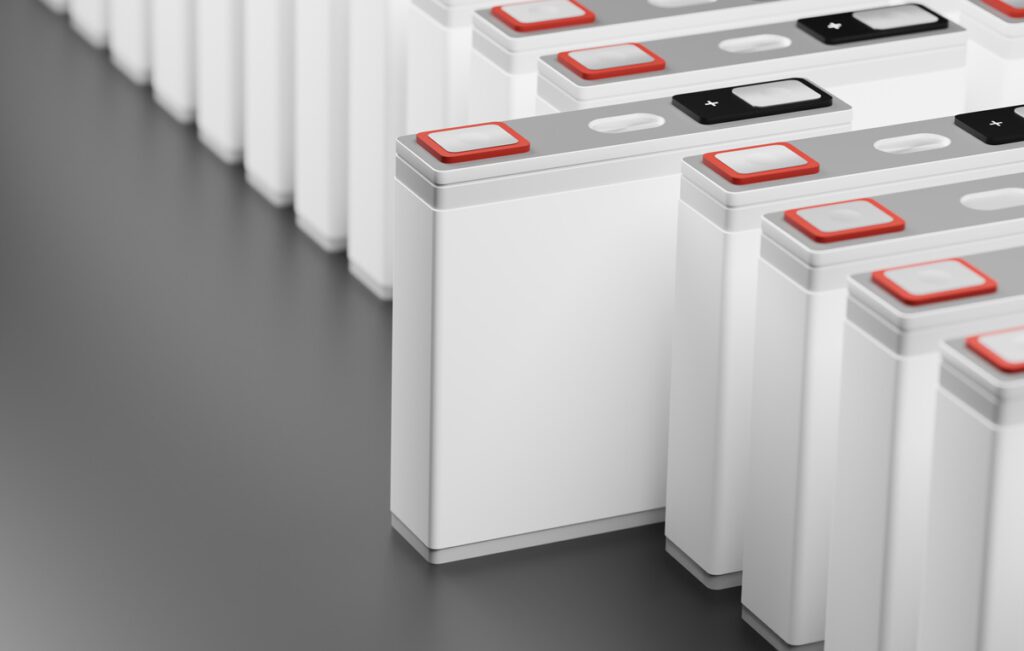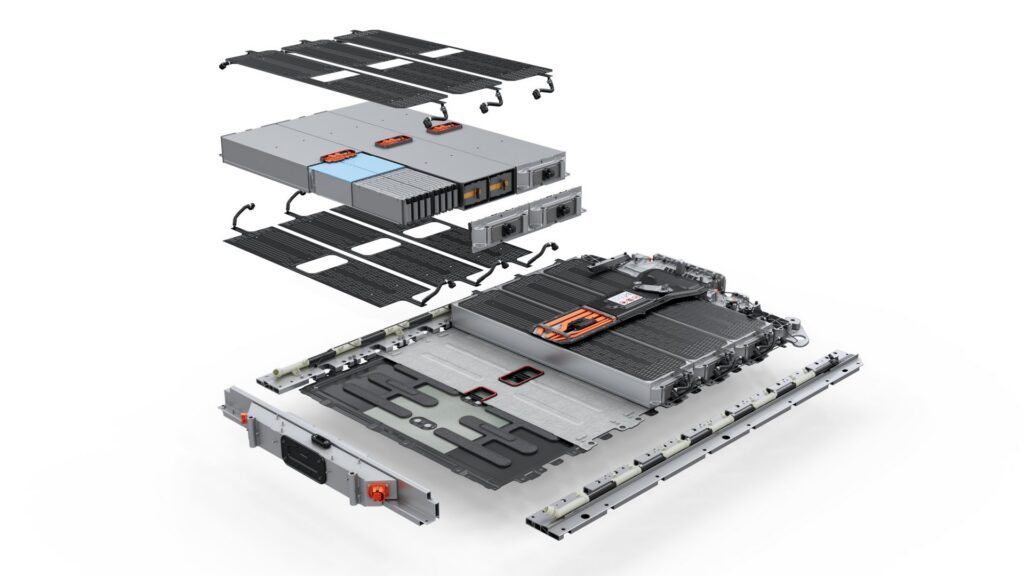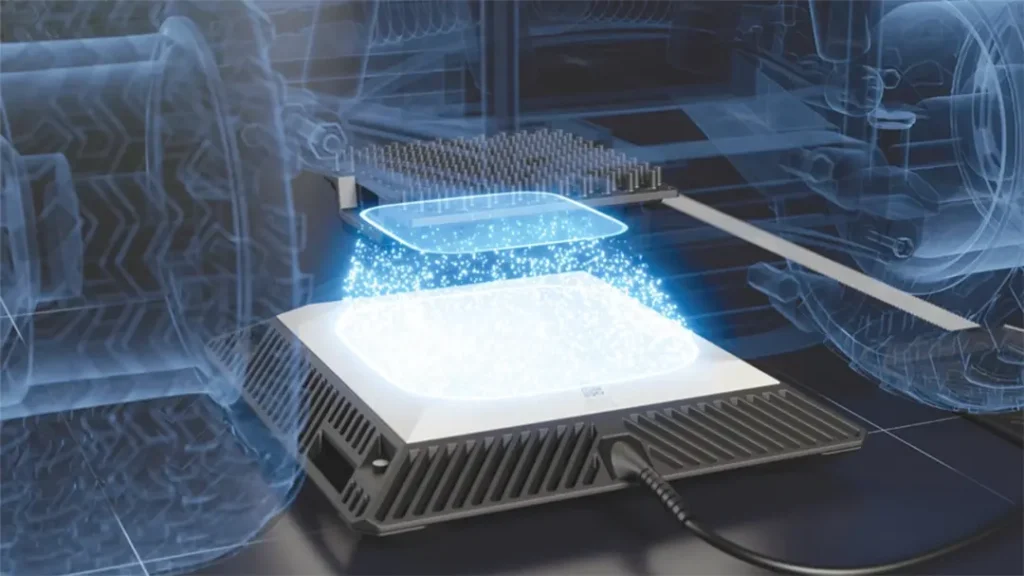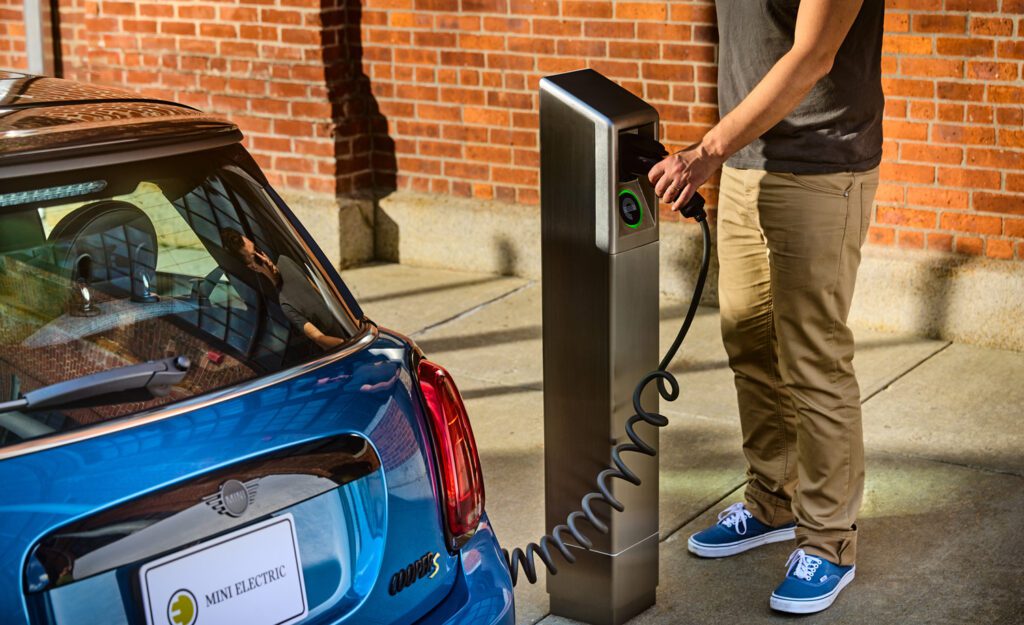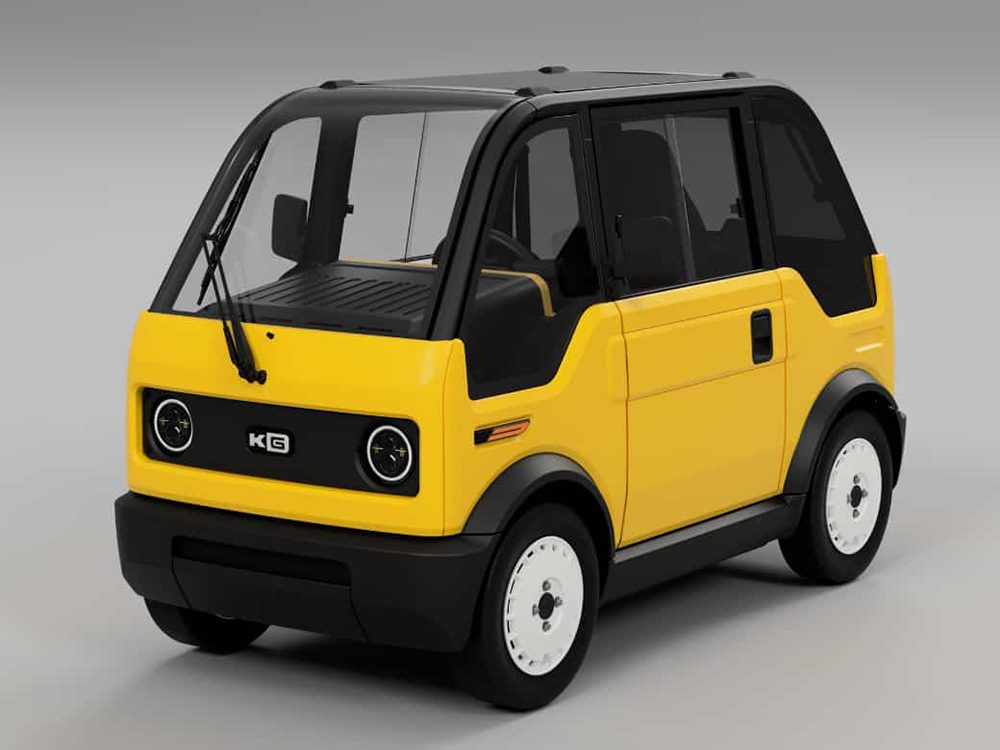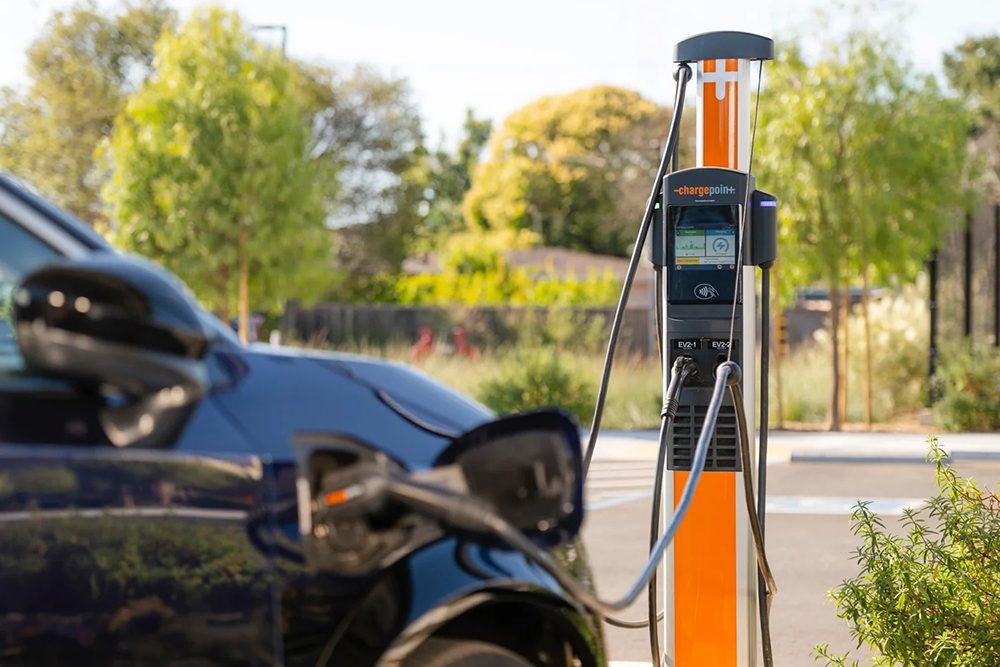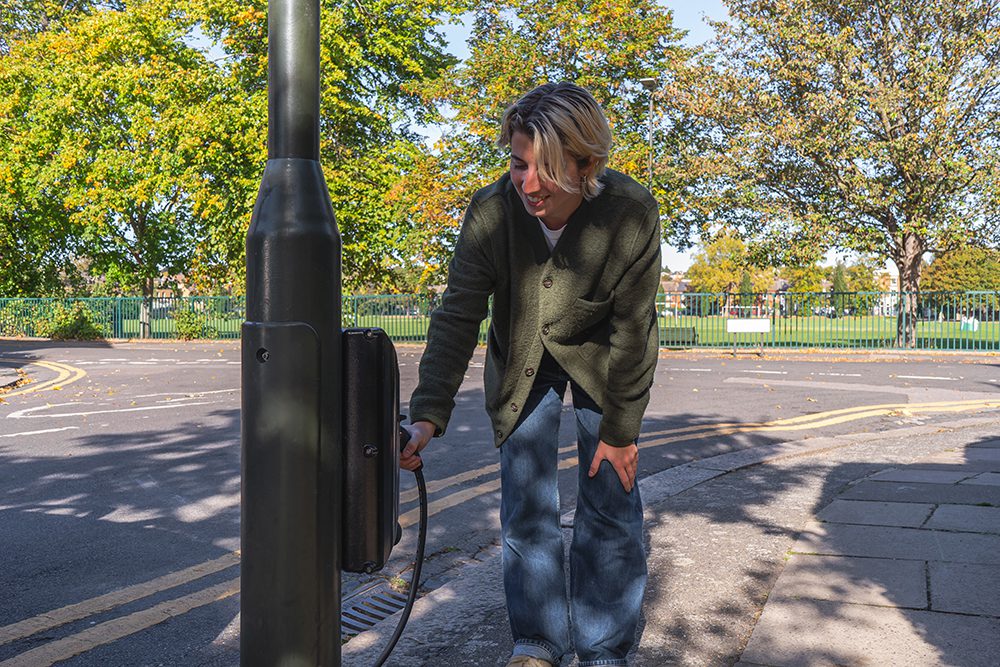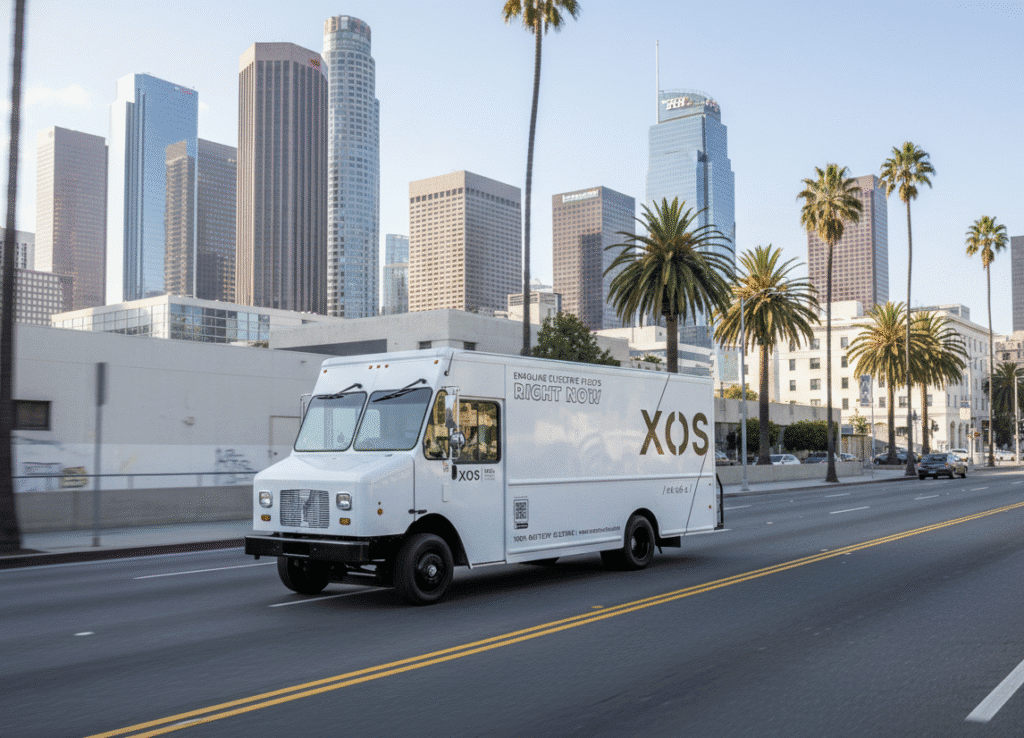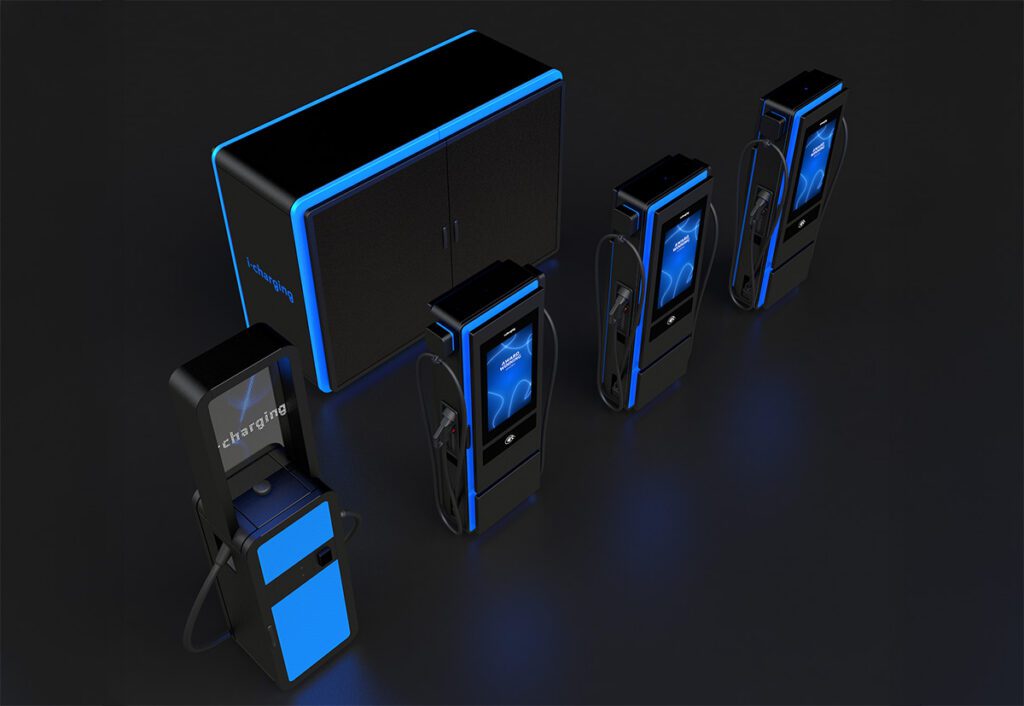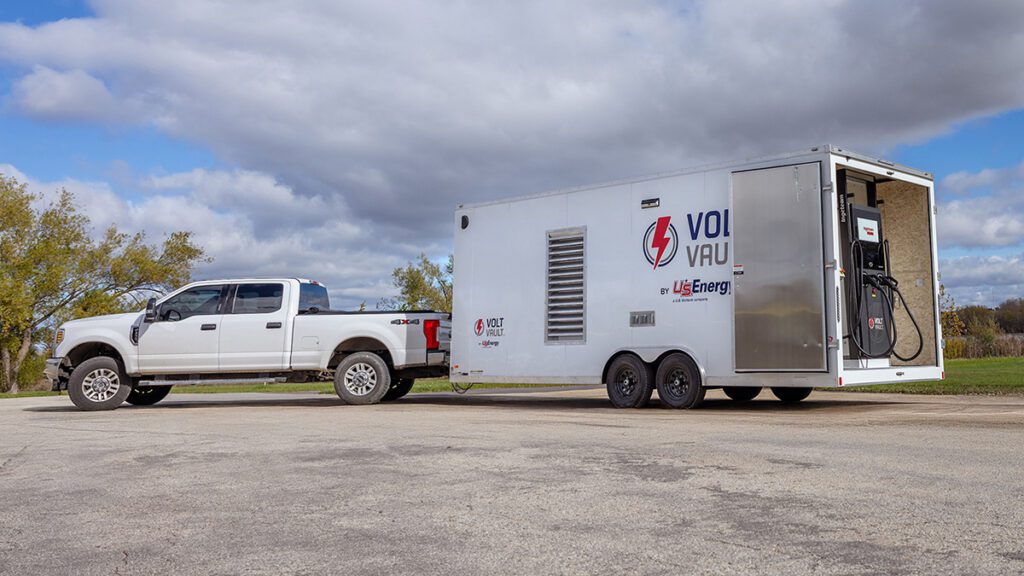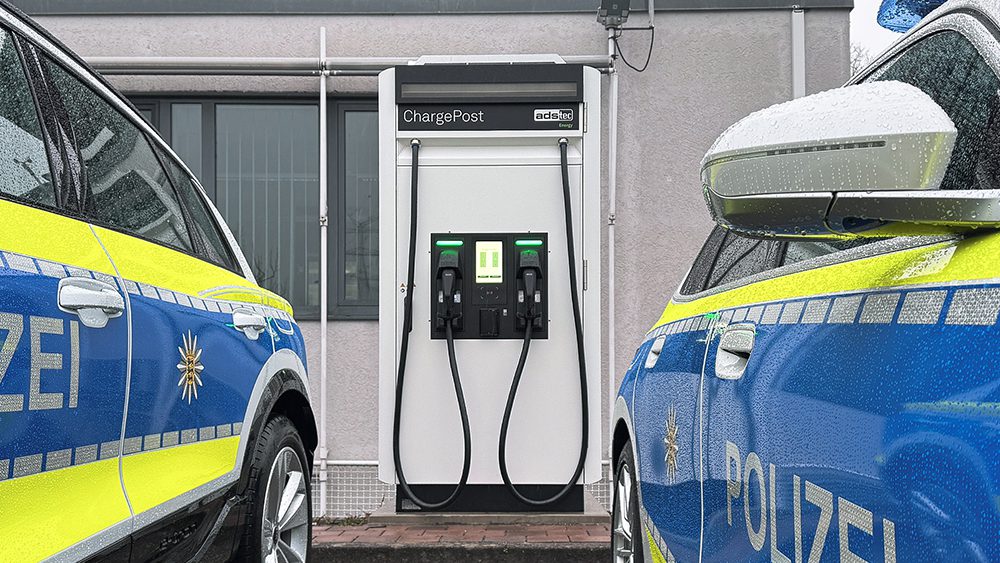Reborn automaker Fisker has filed patents for a new type of solid-state battery technology that it says could lead to much greater energy density and faster charging times.
According to Fisker, current limitations of solid-state technology include low electrode current density, limited temperature ranges and non-scalable manufacturing processes. Other drawbacks include: low power and low rate capability due to high contact resistance and low ionic mobility in the layered electrode structures; delamination issues due to volume changes and residual stresses during charge/discharge processes; dendrite penetration and stability vs. metallic lithium electrodes; and low ionic diffusion, particularly in low temperatures. Fisker’s scientists are addressing these technical bottlenecks.
Fisker reports that its solid-state technology enables the construction of bulk three-dimensional solid-state electrodes with 25 times more surface area than flat thin-film solid-state electrodes and extremely high electronic and ionic conductivities. Fisker claims its battery delivers 2.5 times the energy density of current batteries.
Once the technology is fully validated, Fisker estimates that the battery could deliver a vehicle range of 500 miles, and charging times as low as one minute. The company predicts that the new technology may be ready for automotive applications by 2023. However, it is in discussions with various industrial groups about non-automotive applications that could be implemented earlier.
“Our aggressive vision for the entire EV and automotive industry, not just for Fisker, revolves around making the impossible, possible – and this solid-state battery breakthrough is reflective of our seriousness in making that vision a reality,” said CEO Henrik Fisker. “It used to be about the efficiency of the gasoline engine. Now, it’s all about who breaks the code and smashes the barriers to future battery technologies that will enable mass-market electrification.”
“This breakthrough marks the beginning of a new era in solid-state materials and manufacturing technologies,” said VP of Battery Systems Dr. Fabio Albano. “We are addressing all of the hurdles that solid-state batteries have encountered on the path to commercialization, such as performance in cold temperatures; the use of low-cost and scalable manufacturing methods; and the ability to form bulk solid-state electrodes with significant thickness and high active material loadings.”
Source: Fisker

